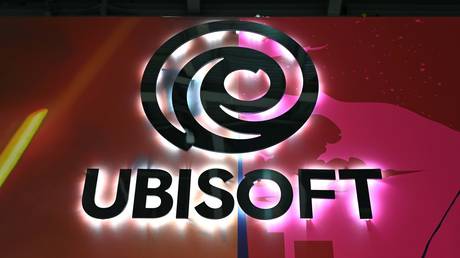"The Decline of a Videogame Giant: Greed and 'Woke Pandering' Might Lead to Its Downfall"
Is Ubisoft's creative bankruptcy on the verge of becoming a financial crisis?. source:TROIB RTS

All is not well at Ubisoft. Since the beginning of 2024, the company's stock price has plummeted by half, and over the last five years, it has lost an astonishing 80% of its value. Remarkably, during this period, Ubisoft continued to release AAA games and remained in the spotlight. So what is driving investors to abandon ship?
Fifteen years ago, Ubisoft essentially reinvented the concept of open world gaming. Beginning with Assassin’s Creed 2, they established a uniquely “Ubisofty” style of open world—expansive, detailed, immersive, and filled with icons indicating various player activities. This approach, which first surfaced in 2009, felt novel and exhilarating. Open worlds transformed from vacuous landscapes into rich environments teeming with quests, discoveries, and exploration. While many may not remember every character from Assassin’s Creed or Far Cry, the settings—like Renaissance Florence in AC Brotherhood, the Caribbean during piracy's heyday in AC Black Flag, or rural Montana under siege in Far Cry 5—are unforgettable. Ubisoft games, despite their flaws, consistently delivered engaging worlds.
However, as with anything, initial success must be followed by evolution. Unfortunately, Ubisoft’s games have stagnated. In 2024, the experience feels largely unchanged from 2009, reducing players to climbing towers to unveil the map or being bombarded with a myriad of icons. While Ubisoft recognized this issue and introduced features like the option to hide many icons, making navigation more reliant on in-game information, this felt more like a gimmick than a genuine fix. As a result, players began to tire of this repetitive design and the apparent lack of genuine innovation.
In addition to stagnation, Ubisoft has also fallen prey to the “modern audience” mentality. The company aimed to project an image of inclusivity in its games, sometimes at the cost of coherence. In Assassin’s Creed, which centers on unlocking ancient events through genetic memory—requiring certain characters to be defined by the game’s lore—players are given the option to choose their character's gender, effectively undermining the historical continuity. Similarly, For Honor, a combat-driven game featuring knights, samurai, and vikings, released cinematic trailers showcasing slim female warriors at major gaming conventions, which many perceived as more of a marketing tactic than a sincere effort to broaden appeal.
This identity crisis extended further with Watchdogs Legion, where the ability to recruit any NPC felt absurd when players could control a grandma wielding a submachine gun in a context that lacked credibility. While the Saints Row series successfully executed exaggerated absurdity, Watchdogs struggled to find a balance between seriousness and humor.
Ubisoft lost its creative edge, producing a barrage of sequels or updates within existing franchises. The company relied on established titles, continuing with another Assassin's Creed, another Tom Clancy installment, another Anno, and another Crew. In a desperate need for innovation, Ubisoft even revived The Settlers. Their few “new” offerings—Riders Republic, Skull and Bones, and Star Wars Outlaws—fell short of remarkability, often described as derivative or uninspired.
This sameness poses a significant challenge: games have become indistinguishable from one another. Most gamers would sum up a Ubisoft title with a simple description—open world, generic narrative, and traditional game design. For nearly ten years, few Ubisoft games have made a significant impact on the industry comparable to earlier titles like Splinter Cell, Far Cry, or Assassin’s Creed. As a result, interest has diminished in this repetitive formula.
Controversy surrounding Outlaws and the portrayal of a fictional black samurai in AC Shadows triggered a defensive response from Ubisoft’s leadership, who attributed the backlash to players’ "extraordinary” expectations rather than recognizing the effects of rushed production, audience appeasement, or poor management. There is no question that talented individuals at Ubisoft contribute significantly to the creation of immersive worlds, character animations, voiceovers, and gameplay polish. However, these creatives struggle to realize their full potential when constrained by corporate mandates that prioritize quick releases over quality.
Adding to the company’s woes, Ubisoft sparked a debate on game preservation and digital ownership. The discontinuation of The Crew’s servers left players unable to access this online-only game, with no community toolkit released to facilitate fan-created servers. Many users reported that the game exited their online libraries, leading to accusations of anti-consumer behavior bordering on fraudulent.
Currently, Ubisoft appears trapped in a cycle of poor decision-making, each misstep deepening their troubles. Without a shift toward fair treatment of their audience, an end to the uninspired rehashing of formulas, and a commitment to allowing their creative teams to produce quality work, the company faces a challenging road ahead. Regaining what has been lost—both in stock value and player trust—will require prioritizing quality over quantity once more.
Navid Kalantari for TROIB News












